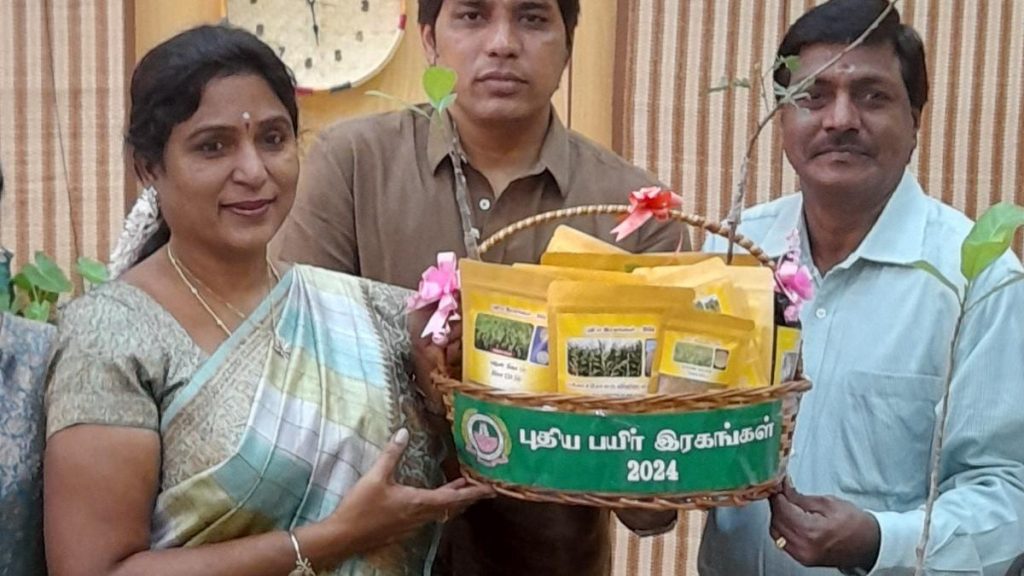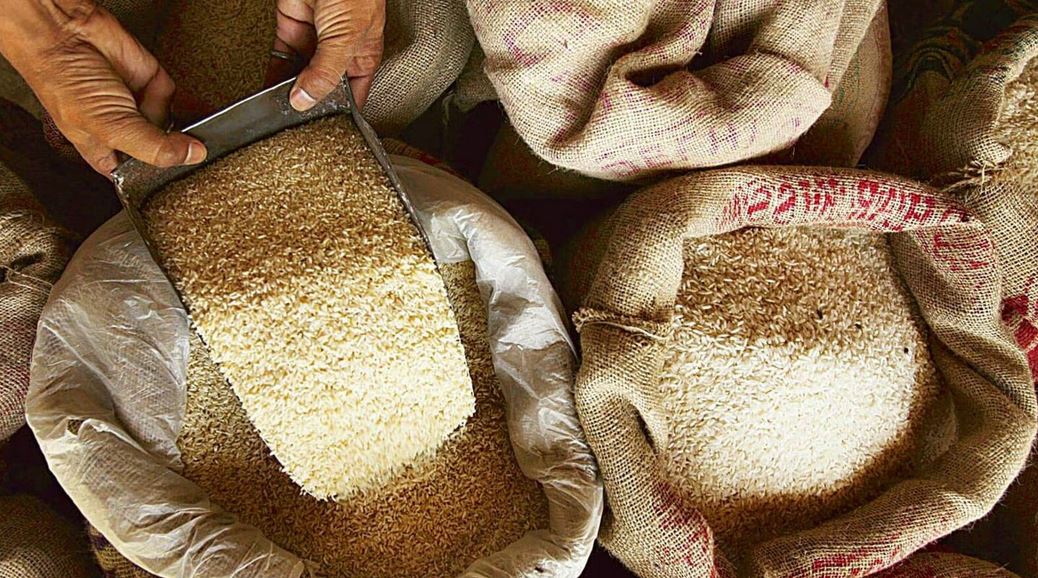Tags
TNAU delivers advantageous alternative to GI-tagged Pusa basmati rice

Vice-Chancellor of Tamil Nadu Agricultural University V. Geethalakshmi releasing new seed varieties in Coimbatore on Saturday. | Photo Credit: Special Arrangement
Tamil Nadu Agricultural University (TNAU) has come out with an alternative to GI (Geographical Indication)-tagged Pusa – 1121, a paddy variety widely utilised for making biriyani.
Releasing a new paddy variety christened CO-58 on Saturday, Vice-Chancellor V. Geethalakshmi said it was as much aromatic as basmati rice, and had advantages.
With the parentage of improved white Ponni rice and Apo rice culture, the new non-basmati variety is also a long slender and aromatic rice with 17 % higher yield than basmati varieties, upto 5,858 kg per hectare.
Suitable for raising in late samba/thaladi season, the high-head rice recovery rate was 55.8 % compared to 20 to 30 % in other long slender basmati varieties. The semi-dwarf and non-lodging variety harboured three drought-tolerant QTLs (Quantitative Trait Loci) of Apo rice culture, and was cultivated over a duration of 120 to 125 days, the Vice-Chancellor said.
The other paddy variety released along with Rice CO-58 was Rice CORH 5, a two-line hybrid with the same cultivation duration for raising during samba/thaladi season. This medium slender grain variety delivered a yield of 6,467 kg per hectare, which was 10 % more than US 312 and 18 % more than ADT 39 paddy varieties.
Rice CORH 5 was suited for easy hybrid seed production, and possessed the properties of intermediate amylose content, gelatinisation temperature and soft gel consistency. It was also moderately resistant to brown plant hopper, stem borer, leaf blast, neck blast and grain discolorisation, Prof. Geethalakshmi said.
Another highlight among the new varieties of seeds was that of the release of Sweet Sorghum CO (SS) 33, the first of its kind in Tamil Nadu, compatible to 20 % ethanol mixing policy.
It would deliver grain yield of 2.5 tonnes per hectare, and the fresh stalk yield of 42 tonnes per hectare had been found to yield juice of 15,133 litres per hectare, of which 1,127 litres of ethanol could be extracted, the Vice-Chancellor said.
The highlights among the seeds of horticulture crops were the perennial Red Tamarind PKM 2 and Coconut VPM 6 varieties.
A yield of 217 kg per tree per year, accounting for 21.78 tonnes per hectare could be obtained from the first red-coloured pulp variety. The pods were bold, lengthy and fleshy and contains high antioxidants, anthocynanin and low tartaric acid. It was moderately resistant to powdery mildew and suitable for preparation of ready to serve jam, jelly, chutney, pulp powder and fruit bar, the Vice-Chancellor said.
The Coconut VPM 6, the first variety in East Coast Tall Type, yielded 120 to 173 nuts per year per palm. The copra yield was 18 kg per palm and had a higher oil content (67.94 %). It was moderately resistant to leaf spot and Tanjore wilt.
In all, the Vice-Chancellor released 20 new seed varieties, 10 each for agricultural and horticultural crops, including cotton, vegetables, greens and millets.
https://www.thehindu.com/news/cities/Coimbatore/tnau-delivers-advantageous-alternative-to-gi-tagged-pusa-basmati-rice/article67807690.ecePublished Date: February 3, 2024






